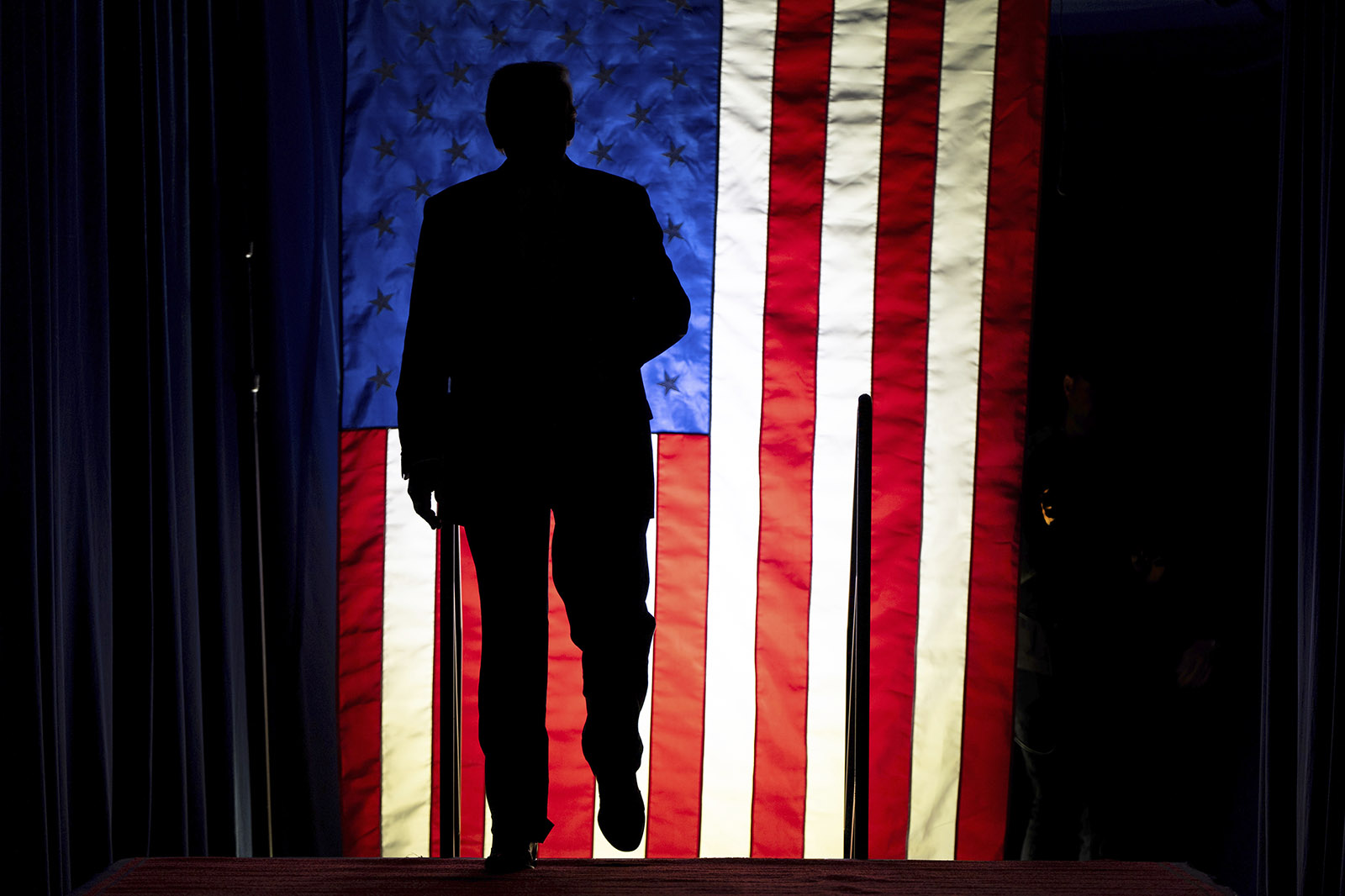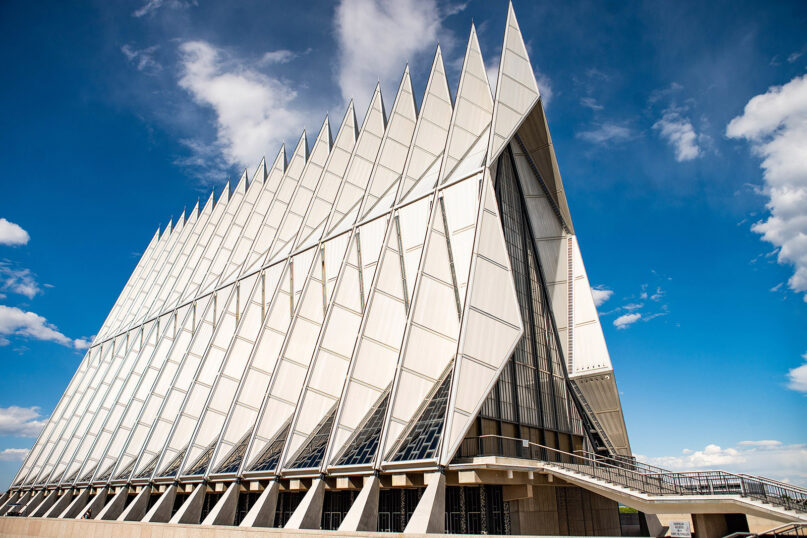
(RNS) — From Russia and Hungary to Turkey and India to the U.S. of A., actual and wannabe authoritarians make a practice of imbuing their movements with religious significance, in a way that identifies them with the sacred dimension of their nations.
All nation-states sacralize themselves to some degree. In the U.S., the Declaration of Independence to Martin Luther King Jr.’s “I Have a Dream Speech” are treated as holy texts, and Washington is littered with temples and shrines, from the Lincoln and Jefferson memorials to the U.S. Supreme Court, to the various war memorials. Not to mention our military monuments — the battlefield at Gettysburg, the Valley Forge camp and above all the military burial grounds such as Arlington National Cemetery.
We have come to call this civil religion, defined by the Italian scholar Emilio Gentile as “the conceptual category that contains the forms of sacralization of a political system that guarantee a plurality of ideas, free competition in the exercise of power, and the ability of the governed to dismiss their governments through peaceful and constitutional methods.” In Gentile’s view, “civil religion respects individual freedom, coexists with other ideologies, and does not impose obligatory and unconditional support for its commandments.”
This civil religious inclusivity helps explain why we ban partisan political activity in U.S. military cemeteries — a ban Donald Trump was widely regarded as having violated in August, when he visited Arlington with family members of military personnel killed in the United States’ 2021 withdrawal from Afghanistan. The headline on a column by USA Today’s Marla Bautista read, “Trump’s appalling desecration of Arlington National Cemetery shows he still can’t be trusted.”
Only something sacred can be desecrated.
The opposite of civil religion is what Gentile calls “political religion”: “the sacralization of a political system founded on an unchallengeable monopoly of power, ideological monism, and the obligatory and unconditional subordination of the individual and the collectivity to its code of commandments.” Political religion is therefore “intolerant, invasive, and fundamentalist, and it wishes to permeate every aspect of an individual’s life and of a society’s collective life.”
A historian of fascist Italy, Gentile is above all interested in the expressly secular totalitarianisms of the mid-20th century. Mussolini, Hitler and Stalin, he argues, constructed fascism, Nazism and communism as national political religions to some extent modeled on familiar religious beliefs and forms.
Civil religion and political religion à la Gentile are, to be sure, ideal types. A civil religion can have aspects of a political religion, and a political religion may likewise incorporate civil religious forms.
Thus, with the onset of the Cold War, American civil religion was expressed so as to exclude atheistic communists. The addition of the words “under God” to the Pledge of Allegiance in 1954 was explicitly intended to differentiate the U.S. from the Soviet Union and its godless supporters, as was the designation of “In God We Trust” as the national motto two years later.

The Air Force Academy chapel in Colorado Springs, Colo. (Photo by Anthony Quintano/Wikimedia/Creative Commons)
A quintessential expression of that moment is the Air Force cadet chapel in Colorado Springs, Colorado, built in 1959. It is, in form, a militarized version of a Christian church — an apparent expression of political religion. But it is very much an expression of the civil religion of the times in featuring separate Protestant, Catholic and Jewish chapels inside.
Contrast this with the cathedral of the Russian military, consecrated in 2020: a Russian Orthodox church with no nod to religious inclusion in a country that is only 40% Russian Orthodox and where fewer than half the citizens consider themselves Christians of any sort. It perfectly expresses the alliance Russian President Vladimir Putin has made with Russian Patriarch Kirill, harking all the way back to the linkage of church and state in the Byzantine Empire.

Russian Orthodox Church Patriarch Kirill, center, and Russian Defense Minister Sergei Shoigu, right, at the consecration of the Cathedral of Russian Armed Forces outside Moscow, June 14, 2020. (Oleg Varov, Russian Orthodox Church Press Service via AP)
A mini-me version of Putin’s political religion has been cooked up by Hungarian Prime Minister Viktor Orbán, who governs with the idea of “illiberal democracy” — a nice term for populist authoritarianism. Presenting Orbán with the “gold degree” of the Order of St. Sava, Serbian Orthodox Patriarch Porfirije praised him for “defending Christianity.” Orbán “fights for the soul of Europe,” the patriarch said. Replied the prime minister, “We are peaceful people, we want peace, but there is indeed a war for the soul of Europe, and without Christian unity – including Orthodoxy – we cannot win this battle.”
Such use of religion can look like Turkish Prime Minister Recep Tayyip Erdogan’s incorporation of Islam into his own authoritarian regime. The difference is that where Erdogan’s Islamism serves to appeal to Turkey’s sizable conservative Muslim population, the Christianism (to put it that way) of Putin and Orbán has no significant religious grassroots constituency, but seems all about rebuilding a postcommunist authoritarian ideology. In the case of Hungary, it resists at once immigration (from Muslim countries) and the pluralistic liberal culture of Western Europe.
How religious constituencies function under authoritarian regimes depends, of course, on how they view those regimes, and vice versa. A half-century ago, Shiite Muslims protested against the authoritarian Shah of Iran, who sought a connection to the glory days of the pre-Islamic Persian Empire. In 1979, these turned into parades supporting the authoritarian regime of Ayatollah Ruhollah Khomeini, which promoted Islamic legal authority as the basis for a theocratic political religion.
A different kind of switching sides occurred in Myanmar, where religious power resides in the community of Buddhist monks. In 2007, the monks denied legitimacy to the military regime by refusing to accept its alms — symbolically represented by “turning over” their begging bowls. The regime yielded but reestablished its power via a genocidal campaign to rid the country of the Muslim minority Rohingya, in which anti-Muslim monks played an ideological role.
Meanwhile, hostility to Islam has been at the center of the Hindu nationalism successfully advanced by Indian Prime Minister Narendra Modi. Its ideology of Hindutva has generated a postsecular political religion that builds on hostility to Muslims in India dating to the Moghuls.
In America, meanwhile, Donald Trump’s incorporation of a form of Christianity into his MAGA movement is personified by his principal spiritual adviser Paula White, a Pentecostal pastor who has praised Trump as “chosen by God to protect religious values.”
White has been strongly influenced by the New Apostolic Reformation, a politically ambitious collection of charismatic Christians who are the subject of “The Violent Take It by Force,” an important new book by Matthew D. Taylor, a senior scholar at the Institute for Islamic, Christian, and Jewish Studies. Credited with providing Christian nationalists with their marching orders, the NAR should be understood as promoting a political religion based on Christian supremacy summed up in the so-called Seven Mountains Mandate.
The mandate holds that Christians should ascend to dominion over the “mountains” of contemporary culture: family, religion, education, media, arts and entertainment, business and government. As Taylor puts it in describing one of the movement’s leaders, while he “speaks the language of democracy and justice and constitutional rights, his ultimate vision is a retrenchment from democracy in the church and society.”
I don’t want to suggest that the MAGA movement is all about establishing the NAR political religion. But there’s no question that NAR ideas have spread through MAGA world.
As for Trump himself, it’s anything but clear that he knows or grasps the Seven Mountains Mandate. But like other authoritarian leaders, he is driven inexorably toward the exclusivism of a political religion. And it’s the NAR’s political religion that’s on offer from the Republican Party this Election Day.
